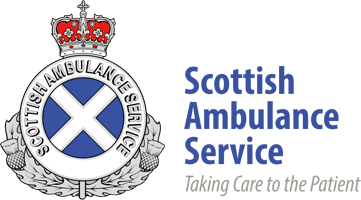Increase in Ambulance Service Staffing to Help with Ongoing Pressures
The Scottish Ambulance Service is accelerating recruitment of new staff over the coming weeks with 356 front line paramedics, technicians and ambulance care assistants being deployed over winter and into early spring.
This follows the recruitment and training of 210 staff over the last six months, bringing the total for this year to nearly 600 frontline staff.
Chief Executive Pauline Howie said that the new members of staff coming in would boost capacity and paid tribute to the ongoing work of staff across the organisation who are working so hard to help patients during a period of sustained pressure across the NHS system.
She said that staff are going above and beyond to save lives, with new figures showing that there has been a rise in 30-day survival for patients within our most seriously ill response category, with latest data showing the number of people surviving is at its highest ever level. From January 2021 to May, 30-day survival data steadily rose month on month to a high of 50.4 per cent of people in this category.
Pauline Howie, Chief Executive said:
“We know that this is one of the most significant periods of pressure on the NHS since its inception. All parts of the system are under pressure and it’s been tough out there for our staff and patients. Everyone is working so hard to help patients and our staff continue to do a fantastic job.
“We know that there will be little let up in those pressures over the next few months so we are accelerating our efforts to increase capacity and do everything we can to support staff. These new staff coming in will be a real boost.
“We continue to prioritise those patients who are most critically ill and staff continue to go above and beyond to save lives with survival figures for patients in our most acute response category at their highest ever level. It is a real testament to their ability to deliver despite the wider pressures upon the system. For those lower acuity patients who do have to wait longer for an ambulance, we are trying to get to you as quickly as we can and I’d once again thank you for your patience.
“We are taking a range of actions each and every day to reduce waits. We are working closely with NHS boards to address the hospital turnaround times to get our crews back on the road to help patients, we are boosting staffing numbers through accelerated recruitment, we are receiving great assistance from partners, using advanced paramedics, community first responders and other key staff to get to all categories of patients for example and our National Command and Control Centre has been stood up to monitor waiting times and take immediate actions to identify and free up resources to attend patients waiting longer than we would like.
“As we move into the winter period, we would ask the public to continue to use 999 wisely. If people have serious health concerns or symptoms, call 999. If your condition isn’t life-threatening, you should call NHS24 on 111.”
Contact Information
Scottish Ambulance Press Office
Notes to editors
Between April and September 2021, 210 new Accident and Emergency staff have been recruited and trained.
We are accelerating our Demand and Capacity Programme recruitment to increase the number of new staff by 356 between October and March 2022. In October and November, 179 new staff will join the service. A further 177 will be recruited by March 2022.
Purple Category (our most critically-ill patients) 30-day survival data is collated three months in arrears in order to validate the figures. Chart CU1.2.1 illustrates that the 30 day survival rate for these patients has shown a month on month improvement with the data at end May 2021 sitting at 53.4% survival rate – our highest ever level.
The purple category includes all clinical codes where there is a cardiac arrest rate over 10% and includes patients in established cardiac arrest, those considered ‘peri-arrest’ meaning that without intervention deterioration to cardiac arrest is imminent, and those patients where our 999 call handlers identify patients with ‘ineffective breathing’.
